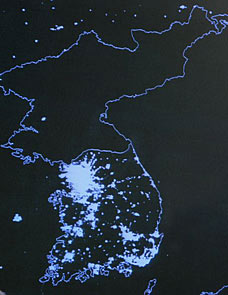In the 1980s and early 1990s, when concern about global warming was in its infancy, little was known about the mechanics of how it could occur, or the consequences that could befall us. Since then, governments throughout the western world and bodies such as the United Nations Intergovernmental Panel on Climate Change have commissioned billions of dollars worth of research by thousands of scientists. With a wealth of data now in, Dr. Allegre has recanted his views. To his surprise, the many climate models and studies failed dismally in establishing a man-made cause of catastrophic global warming. Meanwhile, increasing evidence indicates that most of the warming comes of natural phenomena. Dr. Allegre now sees global warming as over-hyped and an environmental concern of second rank.Meanwhile, if you want to pursue the carbon trading schemes that have helped Al Gore claim that he isn't a hypocrite by running up huge energy bills at his Tennessee home, here's a potential [and humorous] solution for the US: make a carbon trading deal with North Korea.
His break with what he now sees as environmental cant on climate change came in September, in an article entitled "The Snows of Kilimanjaro" in l' Express, the French weekly. His article cited evidence that Antarctica is gaining ice and that Kilimanjaro's retreating snow caps, among other global-warming concerns, come from natural causes. "The cause of this climate change is unknown," he states matter of factly. There is no basis for saying, as most do, that the "science is settled."
Dr. Allegre's skepticism is noteworthy in several respects. For one, he is an exalted member of France's political establishment, a friend of former Socialist president Lionel Jospin, and, from 1997 to 2000, his minister of education, research and technology, charged with improving the quality of government research through closer co-operation with France's educational institutions. For another, Dr. Allegre has the highest environmental credentials. The author of early environmental books, he fought successful battles to protect the ozone layer from CFCs and public health from lead pollution. His break with scientific dogma over global warming came at a personal cost: Colleagues in both the governmental and environmental spheres were aghast that he could publicly question the science behind climate change.
But Dr. Allegre had allegiances to more than his socialist and environmental colleagues. He is, above all, a scientist of the first order, the architect of isotope geodynamics, which showed that the atmosphere was primarily formed early in the history of the Earth, and the geochemical modeller of the early solar system. Because of his path-breaking cosmochemical research, NASA asked Dr. Allegre to participate in the Apollo lunar program, where he helped determine the age of the Moon. Matching his scientific accomplishments in the cosmos are his accomplishments at home: Dr. Allegre is perhaps best known for his research on the structural and geochemical evolution of the Earth's crust and the creation of its mountains, explaining both the title of his article in l' Express and his revulsion at the nihilistic nature of the climate research debate.
Calling the arguments of those who see catastrophe in climate change "simplistic and obscuring the true dangers," Dr. Allegre especially despairs at "the greenhouse-gas fanatics whose proclamations consist in denouncing man's role on the climate without doing anything about it except organizing conferences and preparing protocols that become dead letters." The world would be better off, Dr. Allegre believes, if these "denouncers" became less political and more practical, by proposing practical solutions to head off the dangers they see, such as developing technologies to sequester C02. His dream, he says, is to see "ecology become the engine of economic development and not an artificial obstacle that creates fear."

That black hole of a country without any sign of light is North Korea. South Korea shines brilliantly in the night. North Korea turns off the lights at 9pm because they have to ration power. How this deal would work: the North Koreans don't produce any power- nuclear or otherwise, while we give them money in the form of energy credits. The net-net is that we've suddenly become a more green country.
It's a win-win for all involved. The econuts get their green scheme. The North Koreans get money that will go to feeding L'il Kim's merlot habit, and the US gets to say they've solved the North Korean conundrum. Since North Korea isn't producing any power, they've got lots of energy credits to spare.
No comments:
Post a Comment